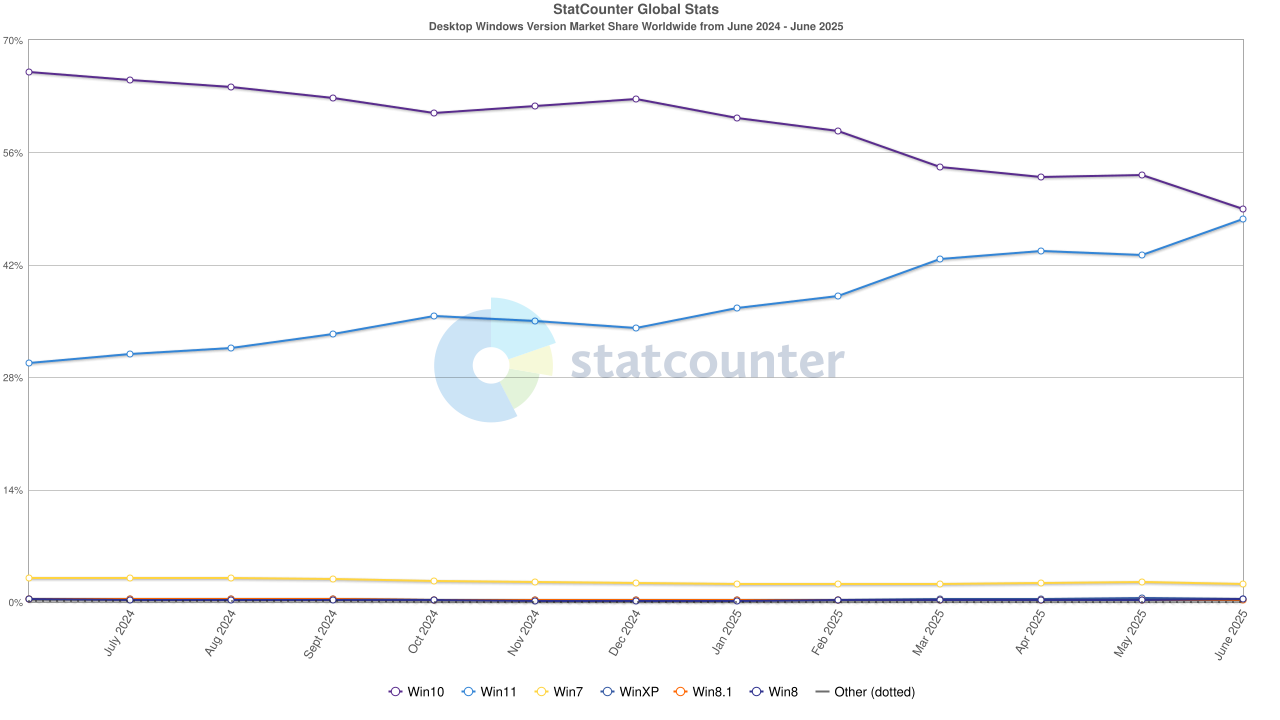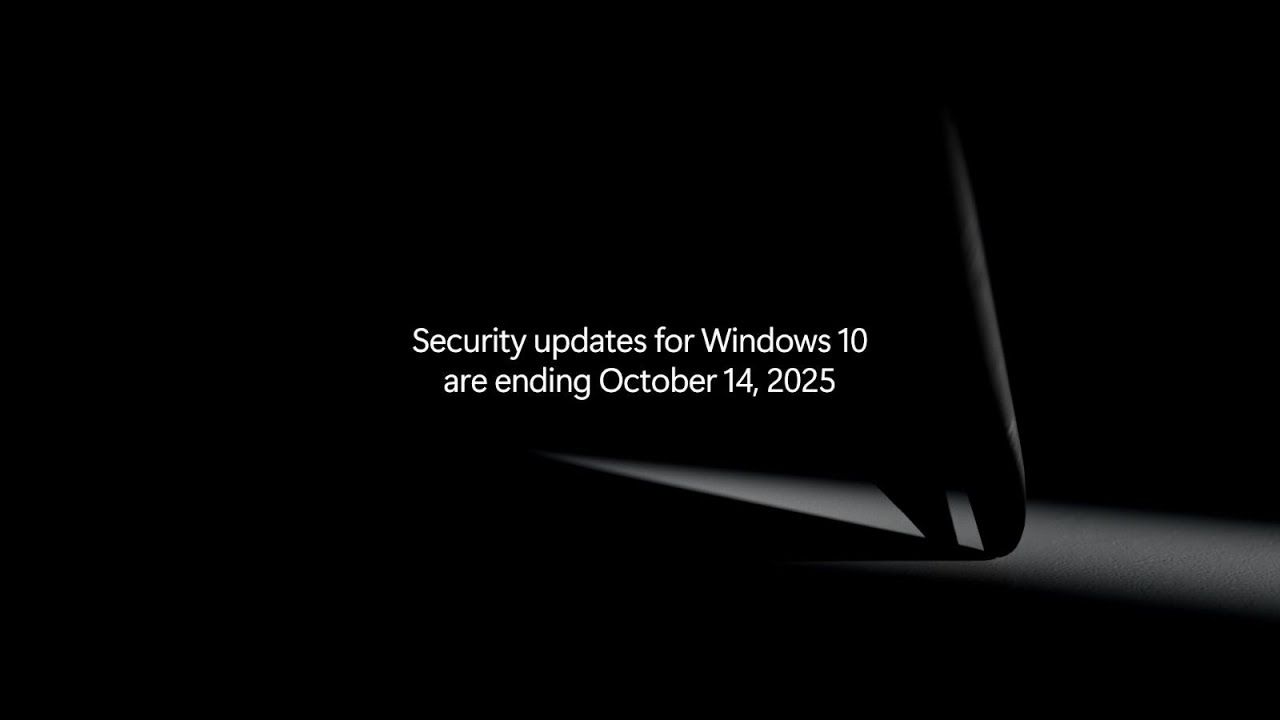Summary
- Windows 11 is closing in on Windows 10 with just over 1% difference in user base.
- A recent StatCounter update shows Windows 10 at 48.92%, Windows 11 at 47.73%.
- People migrate due to Windows 10 support ending in October, pushing Microsoft to promote Windows 11.
Ever since its release, Microsoft has had a rough time trying to encourage Windows 10 users to upgrade to Windows 11. Now, with Windows 10 falling out of support in October 2025, Microsoft has been really pulling out the stops to get people to make the move. People have stuck with their Windows 10 guns as the operating system continuously has a larger share of users than Windows 11, but that lead has gradually eroded over the months.
Well, it seems that Microsoft's dream of having Windows 11 become the dominant operating system is almost here. A new statistic claims that Windows 10's lead over Windows 11's userbase has shrunk to just over 1%, and if the trend continues even a little bit, Windows 11 will become the most-used Microsoft OS, likely until Windows 12 releases (if ever).
Windows 11 is on the verge of taking over Windows 10 in terms of user base

The latest figures come from StatCounter, which has been the de facto means of reporting on the Windows OS user base in recent years. If you take a look at how things were last June, Windows 10 enjoyed a hefty 66% of the Microsoft OS market share, while Windows 11 had to make do with just under 30% of the rest. However, in the space of a year, the two operating systems have slowly converged at about the same rate, with Windows 10 users migrating to Windows 11.
Now, the latest StatCounter update puts Windows 10's share at 48.92%, and Windows 11's at 47.73%. This comes after a sudden wave of conversions from Windows 10 to Windows 11 in one of the largest jumps we've seen since Windows 11's release.
So, why the sudden shift over to Windows 11? While StatCounter doesn't let us peer into the minds of those who made the swap, the most obvious reason is that Windows 10 is losing support in October. Given how Microsoft has been sending out a lot of warnings about it on its social media and in Windows 10 itself, people have likely either bought a new computer, upgraded their old one, or just forced Windows 11 on their old hardware to avoid the loss of support.
For those who are still sticking with Windows 10 for now, you may be interested to learn that Microsoft is adding a PC migration tool that lets you move your stuff over to a new PC. Still, even with the most convenient tools available, some people are just not going to make the jump, either because their system can't handle it or because they feel Windows 11 has just gotten worse with every update. Windows 10 may get overtaken, but it'll take years for it to die off completely.
.png)












 English (US) ·
English (US) ·